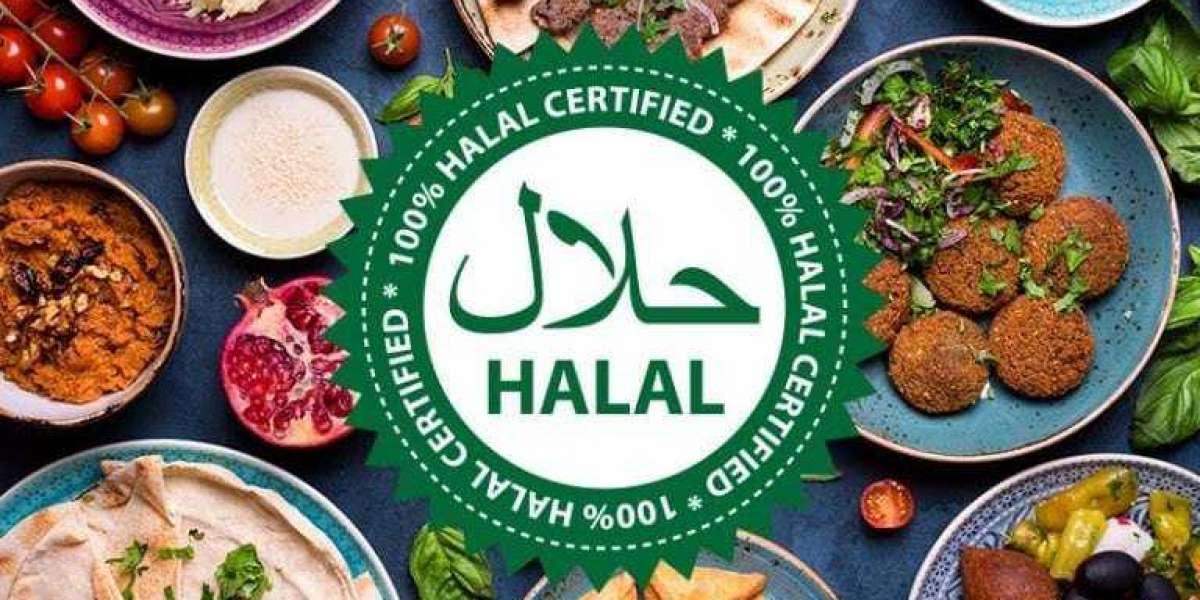Halal certification plays a critical role in ensuring that food, products, and services comply with Islamic dietary laws and practices. The term "Halal" refers to anything that is permissible or allowed in Islam, and it extends beyond food to include other aspects of daily life such as cosmetics, pharmaceuticals, and even services like banking and finance. This certification guarantees that products adhere to strict guidelines set forth by religious scholars, ensuring they are free from prohibited substances and processes. In this article, we will explore the significance of Halal certification, the steps involved in obtaining it, the global demand for Halal-certified products, and the benefits for businesses and consumers alike.
What is Halal Certification?
Halal certification is a process that ensures a product, service, or process complies with the dietary and ethical standards of Islam. The certification is granted by recognized Halal certification bodies after a detailed inspection and assessment. For food, it ensures that ingredients used are permissible according to Islamic law and free from Haram (forbidden) elements, such as pork or alcohol. Beyond food, the Halal certification process also applies to cosmetics, toiletries, pharmaceuticals, and even the financial industry.
For example, in food production, Halal certification ensures that animals are slaughtered according to specific Islamic guidelines, such as the recitation of prayers during slaughter and the humane treatment of the animal. In the case of beverages, it ensures that no alcohol is used in any form, whether in flavoring or as a preservative. Halal certification also extends to the ingredients used in processed foods, ensuring no contamination from Haram sources.
The Importance of Halal Certification for Muslim Consumers
Halal certification is crucial for Muslim consumers who wish to live in accordance with their faith’s teachings. Muslims are obligated to consume only Halal food and products. This ensures not just compliance with religious laws but also spiritual well-being. The significance of Halal certification goes beyond dietary laws; it encompasses a broader lifestyle choice that aligns with the values of cleanliness, purity, and ethical practices as prescribed in Islam. For instance, many Muslims avoid products tested on animals, and Halal certification often includes assurance that no animal cruelty was involved in the manufacturing process.
Additionally, Halal certification gives Muslim consumers the confidence that the products they purchase are in line with their values. In countries with a substantial Muslim population, Halal certification is a key indicator that a product or service can be consumed with peace of mind. As the Muslim population grows worldwide, the demand for Halal-certified products and services continues to increase, making it a key factor in global commerce.
The Halal Certification Process
The process of obtaining Halal certification involves a thorough inspection by accredited Halal certification bodies. These bodies assess various aspects of production, from raw materials to manufacturing methods, packaging, and storage. Below are the key steps involved in obtaining Halal certification:
1. Application and Documentation Review
The first step is for a company to apply for Halal certification through an accredited certification body. The company submits detailed documentation regarding the ingredients, production processes, equipment used, and the sourcing of materials. This documentation is scrutinized to ensure compliance with Halal standards.
2. Inspection and Auditing
Once the documentation is reviewed, the Halal certification body conducts an inspection of the company’s facilities. This includes an audit of the manufacturing processes to ensure that no Haram ingredients or practices are involved. The audit also checks for cross-contamination risks, particularly in facilities that produce both Halal and non-Halal products.
3. Product Testing and Ingredient Verification
If applicable, the certification body may require laboratory testing of products to ensure they do not contain any prohibited substances, such as pork gelatin or alcohol. Ingredients are verified to ensure they meet the requirements of Islamic law.
4. Certification Issuance
Once the inspection is completed, and the company passes all requirements, the Halal certification body issues a certificate. This certification confirms that the product, service, or facility complies with Islamic guidelines.
5. Ongoing Monitoring and Renewal
Halal certification is not a one-time process. Certified companies are regularly monitored to ensure that they continue to meet Halal standards. This includes annual inspections and renewal of certification. Companies are also required to notify certification bodies of any changes in production processes or ingredients.
The Global Demand for Halal-Certified Products
The global demand for Halal-certified products has been steadily increasing. With the growing Muslim population, both in Muslim-majority countries and Muslim-minority countries, businesses are recognizing the need to cater to this market. The Halal market is estimated to be worth billions of dollars globally, with Halal food accounting for the largest share. In addition to food, there is a rising demand for Halal-certified cosmetics, pharmaceuticals, fashion, and even services such as tourism and finance.
One of the key drivers of this growth is the increasing awareness of Halal products among non-Muslim consumers as well. Many non-Muslim consumers prefer Halal products due to their perceived ethical standards, such as the humane treatment of animals during slaughter and the absence of harmful chemicals or substances. For example, Halal cosmetics and personal care products are gaining popularity due to their commitment to using natural and cruelty-free ingredients.
In regions such as the Middle East, Southeast Asia, and parts of Africa, Halal certification is a prerequisite for market entry. Even in Western markets, many global retailers now offer Halal-certified products to tap into the growing demand from Muslim communities. Major food chains, including fast-food restaurants, have also adopted Halal practices to cater to Muslim consumers.
Benefits for Businesses and Consumers
For Businesses:
Access to a Growing Market: Obtaining Halal certification allows businesses to tap into the lucrative Halal market, which is expanding globally. This opens up new opportunities for growth and expansion, especially in Muslim-majority countries.
Increased Consumer Trust: Halal certification provides businesses with a level of credibility and trust among Muslim consumers, as it demonstrates their commitment to ethical practices and religious standards. This can lead to increased brand loyalty and repeat business.
Market Differentiation: With the increasing demand for Halal products, having Halal certification can give businesses a competitive edge. It differentiates their products from competitors and helps attract a diverse customer base.
Compliance with Global Standards: Halal certification also ensures that a business complies with international food safety and ethical standards. This can help businesses expand into markets where ethical sourcing and production are highly valued.
For Consumers:
Peace of Mind: Halal certification gives consumers confidence that the products they are purchasing meet religious and ethical standards. This helps them make informed choices aligned with their faith.
Higher Quality Products: Many Halal-certified products are perceived to be of higher quality, as the certification process includes stringent checks on ingredients, sourcing, and production methods.
Health and Safety: Halal products are often considered to be healthier, as they avoid harmful ingredients like alcohol or synthetic additives, which are prohibited in Halal-certified goods.
Conclusion
Halal certification US is not just a religious requirement but also a significant economic factor that influences global markets. It ensures that products meet the ethical, dietary, and religious standards required by Muslims, and provides businesses with an opportunity to cater to a growing, conscientious consumer base. As the demand for Halal products continues to rise globally, both businesses and consumers benefit from the increased transparency, quality, and ethical standards associated with Halal certification. With its broad application across various industries, Halal certification is set to continue playing a vital role in shaping the future of global commerce.







